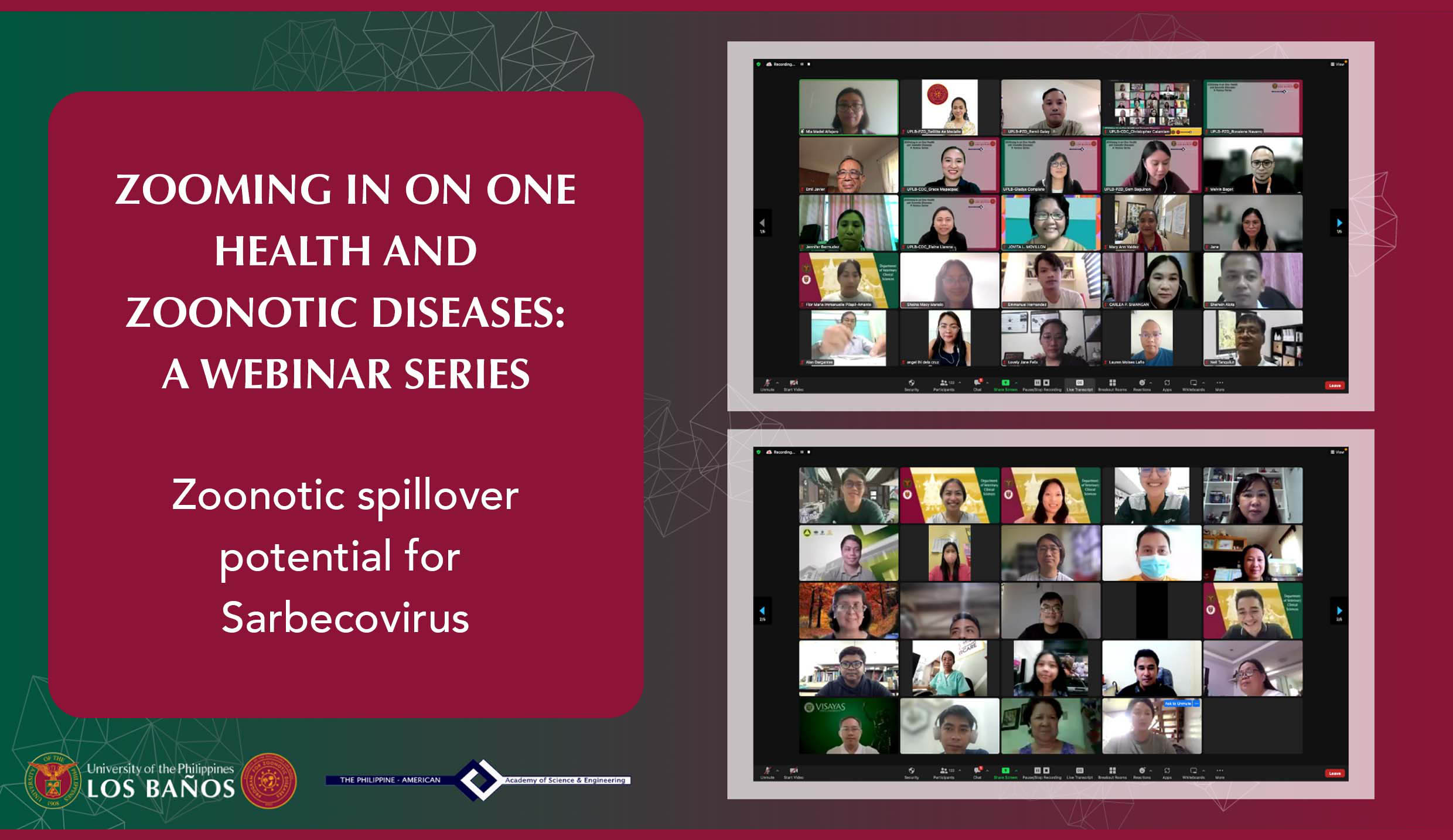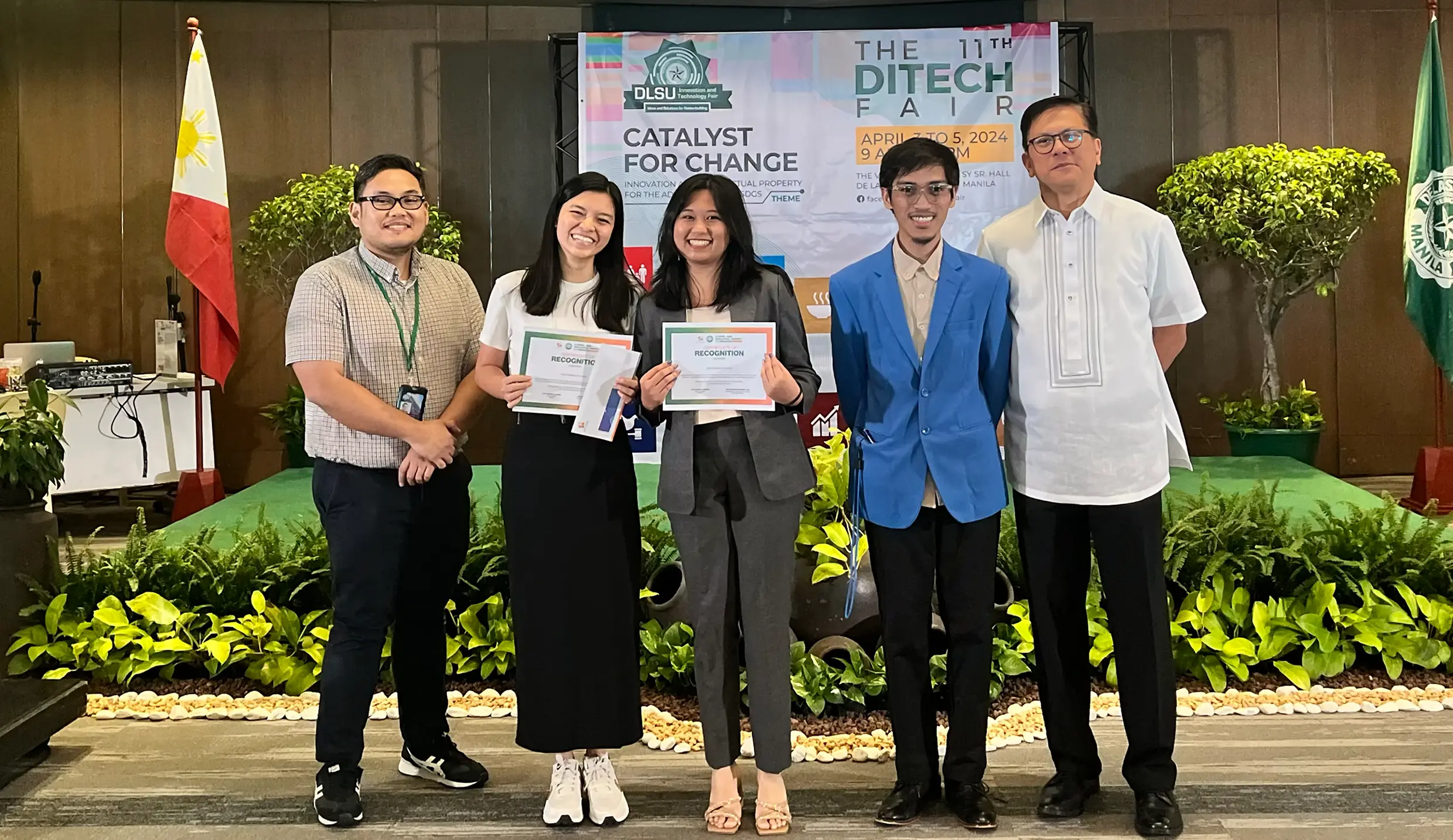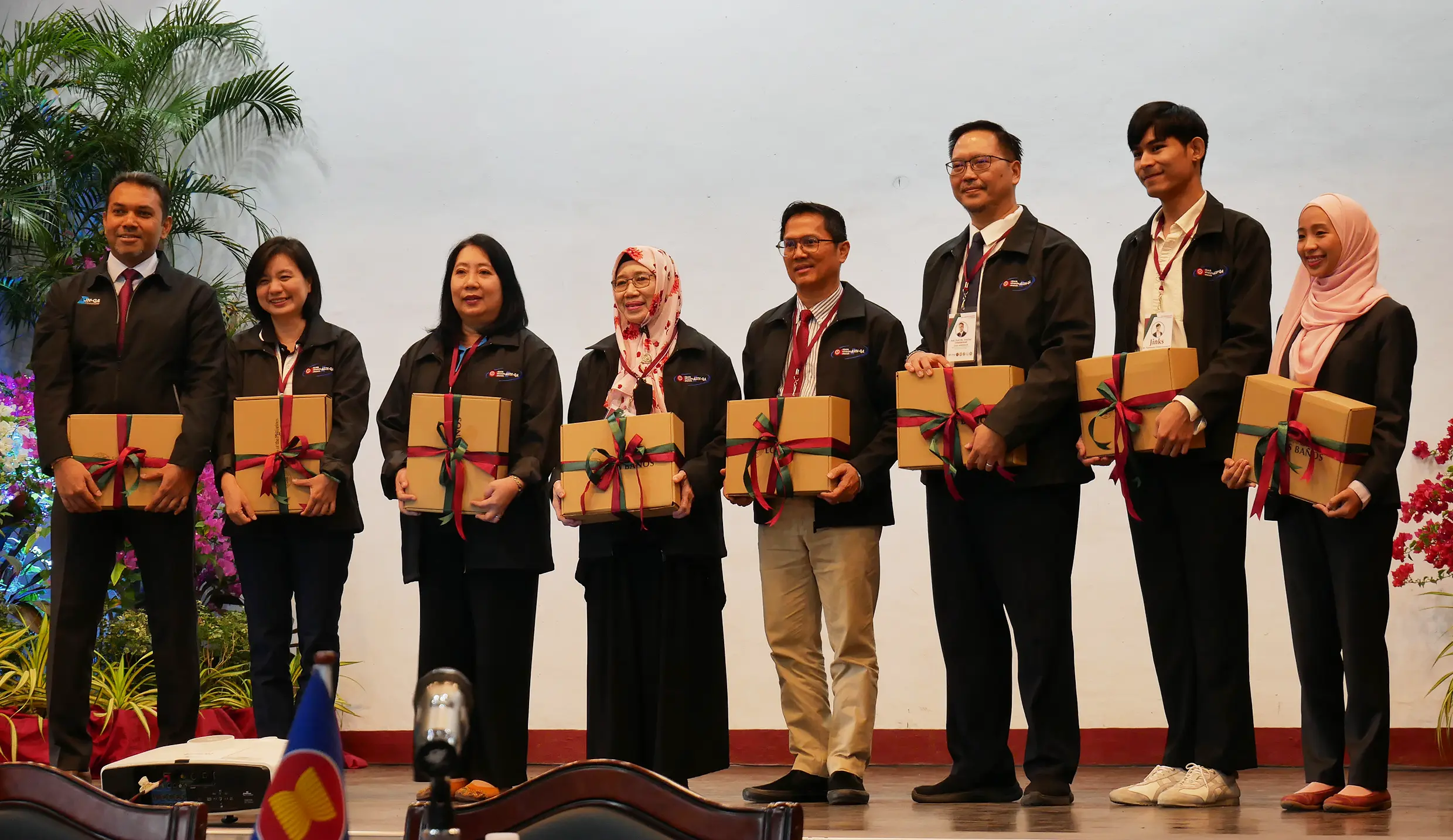
The UPLB Program for Zoonotic Diseases (PZD) and the Philippine-American Academy for Science and Engineering (PAASE) kicked off a webinar series entitled “ZOOming in on One Health and Zoonotic Diseases: A Webinar Series,” on Nov. 4 in celebration of One Health Day.
One Health Day has been marked globally every Nov. 3 since 2016 to bring attention to the need for a One Health approach to address shared health threats at the human-animal-environment interface.
The first in the 3-part webinar series, entitled “Zoonotic Spillover Potential of Sarbecoviruses,” featured Dr. Mia Madel A. Alfajaro of the Departments of Laboratory Medicine and Immunobiology of Yale University. Dr. Alfajaro discussed how zoonotic spillovers work and affect the human population.
Dr. Mariano R. Sto. Domingo, president of PAASE, formally opened the webinar and expressed his gratitude to UPLB and PZD for partnering with PAASE and initiating informative discussions through the webinar series. He announced that PAASE is offering small grants to students, faculty members, researchers, or scientists who wish to work on graduate programs in science, technology, engineering, and mathematics, or STEM.
Spillovers explained
Dr. Alfajaro presented a timeline of the emergence and repeat spillovers of samples of RNA viruses and Monkeypox virus to humans from 1997 to the present time. A spillover is a transmission of pathogens between species as they breach the species barrier and jump into a host population that has not previously been affected. She discussed the three major players in spillovers: the source host or the species responsible for shedding the pathogen; the recipient host or the species infected by the pathogen from a different host; and the intermediate host or the link that transfers the pathogen between species.
The webinar also delved into the four ways by which new pathogens are introduced into the human population. These happen through direct transmission from the source host to the recipient host, transmission from the source host to an intermediate vertebrate, from an invertebrate host to the recipient host, and from the source host to the environment, then to the recipient host.
According to Dr. Alfajaro, every human coronavirus has a zoonotic origin. The viruses are always there, but their pandemic potential is rare as they must overcome multiple barriers, specifically the ability to enter and replicate, evade immunity, and become transmissible between humans.
To a question posed by National Scientist Emil Q. Javier regarding the return to normalcy in the country, Dr. Alfajaro emphasized the importance of vaccination and the need for government intervention to step up education and information dissemination about the effectiveness of vaccines.
Academician Gisela P. Concepcion broached the uncertainties in the “ongoing warfare” against viruses brought about by how they mutate, which she said Filipino scientists should try to understand better.
Dr. Alfajaro reiterated the importance of vaccination, of reaching herd immunity, and preventing the circulation of the virus. Academician Concepcion added that some scientists in the country and abroad are “still critiquing the vaccine” and said that discussions should be opened on the topic.
The UPLB PZD
At the beginning of the webinar, Dr. Remil L. Galay, program director, discussed UPLB PZD’s background, vision, and initiatives.
Formally launched on Nov. 3, 2021, UPLB PZD envisions becoming one of the lead research and knowledge resource centers on zoonotic diseases in Asia and aims to contribute to the advancement of One Health through disease prevention and management. UPLB PZD is aligned with Accelerating Growth through One Research and Extension in Action or AGORA, the rebranded research and extension agenda of UPLB, under the focus area disease prevention and mitigation.
UPLB PZD employs a One Health interdisciplinary approach involving representatives of various UPLB colleges organized under eight divisions, namely: epidemiology and data science, parasite and vector biology and control, food and feed safety, communication and knowledge management, microbial research, pathology and diagnostics, zoonoses prevention and control, and social sciences for policy and extension, and the animal research unit.
According to Dr. Galay, the construction of the National Zoonoses Center building is expected to commence next year. The building has been alloted PhP 100 million under the 2022 General Appropriations Act.
Dr. Galay said that the webinar series also aims to initiate research collaborations between collaborators and partners who can join the fight against zoonotic diseases.
The webinar may be viewed on the UPLB Program for Zoonotic Diseases Facebook Page. (Kyle Ramiel Dalangin)









